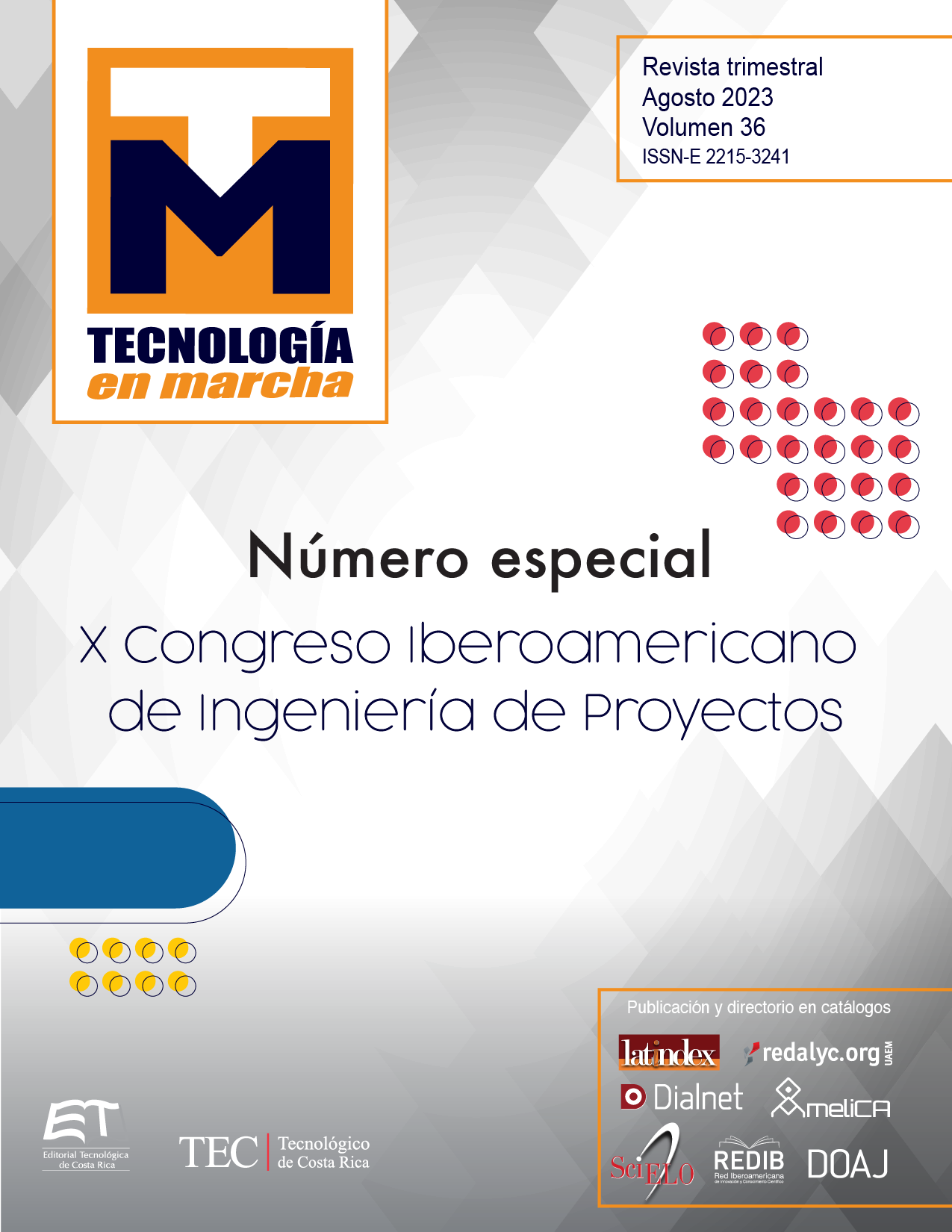The monitoring of educational quality as a pillar for good Project Management in future engineering professionals
Main Article Content
Abstract
Quality should always be present in the management of engineering projects, but for future professionals to be able to internalize the concept of quality in everything they do, the subject must have been a transversal axis in their learning process since their training. The self-assessment and accreditation processes of the careers seek to ensure a minimum quality in the professional education of future graduates, and with this influence the professional skills they can develop. In recent decades, the accrediting agencies of engineering careers worldwide have promoted the need to evaluate the graduation attributes in people who graduate from engineering careers as a previous step to guarantee the desired competencies in the professional person, which it is also directly related to quality assurance of higher education in these disciplines. Linking the findings of these evaluation processes with curricular reforms is a key input to improve the development of careers and teaching-learning processes with students, especially in some key attributes for good project management such as: oral and written communication, teamwork, problem solving, among others. The present work exposes the success case of the Civil Engineering Degree of the University of Costa Rica, where the integral methodology that was applied to carry out a curricular reform that contemplates the need to demonstrate the graduation attributes and the challenges is addressed. of accreditation with a view to improving the program, linked to how this is expected to contribute to the skills of future engineers in the execution of engineering projects.
Article Details

This work is licensed under a Creative Commons Attribution-NonCommercial-NoDerivatives 4.0 International License.
Los autores conservan los derechos de autor y ceden a la revista el derecho de la primera publicación y pueda editarlo, reproducirlo, distribuirlo, exhibirlo y comunicarlo en el país y en el extranjero mediante medios impresos y electrónicos. Asimismo, asumen el compromiso sobre cualquier litigio o reclamación relacionada con derechos de propiedad intelectual, exonerando de responsabilidad a la Editorial Tecnológica de Costa Rica. Además, se establece que los autores pueden realizar otros acuerdos contractuales independientes y adicionales para la distribución no exclusiva de la versión del artículo publicado en esta revista (p. ej., incluirlo en un repositorio institucional o publicarlo en un libro) siempre que indiquen claramente que el trabajo se publicó por primera vez en esta revista.
References
Centeno, E. & Cruz, N. (2018). La construcción epistemológica en Ingeniería Civil: Visión de la Universidad de Costa Rica, vol. 19, n.1, p. 1-30. DOI 10.15517/AIE.V19I1.35328.
Bolaños, C. et al. (2015) Discusión conceptual y sistematización de experiencias para el diseño curricular por competencias. Proyecto piloto de innovación docente: formación por competencias. Recuperado de: http://repositorio.conare.ac.cr/handle/20.500.12337/2245
Vargas Zúñiga, F. (2004) Competencias clave y aprendizaje permanente. Montevideo: Cinterfor/OIT. (Herramientas para la transformación, p.26)
Guzmán A., A. (2010). Las competencias: Otra mirada a la formación universitaria de enfermería. Revista Electrónica Actualidades Investigativas en Educación. Volumen 10, número 1. Pp.1-28.
Díaz-Barriga, F. (2012) “Reformas curriculares y cambio sistémico: una articulación ausente pero necesaria para la innovación” Revista iberoamericana de educación superior. Recuperado de: http://www.scielo.org.mx/scielo.php?pid=S2007-28722012000200002&script=sci_arttext&tlng=en
Coll, C. (2006), “Cada vez que ha habido cambio curricular, ha sido como resultado de un debate ideológico y no del análisis de las evaluaciones. Entrevista a César Coll”, en Docencia, núm. 29, agosto, p. 30-39.
Román Pérez, M., Diez López, E. (2005). Diseños Curriculares de aula. En el marco de la sociedad del conocimiento. Madrid: Editorial EOS.
EIC (2022). Boletín informativo. Resultados del plan Piloto medición de atributos de egreso - II semestre 2021.
Aguerrondo, I. (2007). El nuevo paradigma de la educación para el siglo XX. La educación. Revista Interamericana de Desarrollo Educativo, Nº116, III, OEA, Wash. DC. Disponible en http://www.campus.oei.org
González G., Y. (2006). Educación y Universidad. San José: Editorial Universidad de Costa Rica

